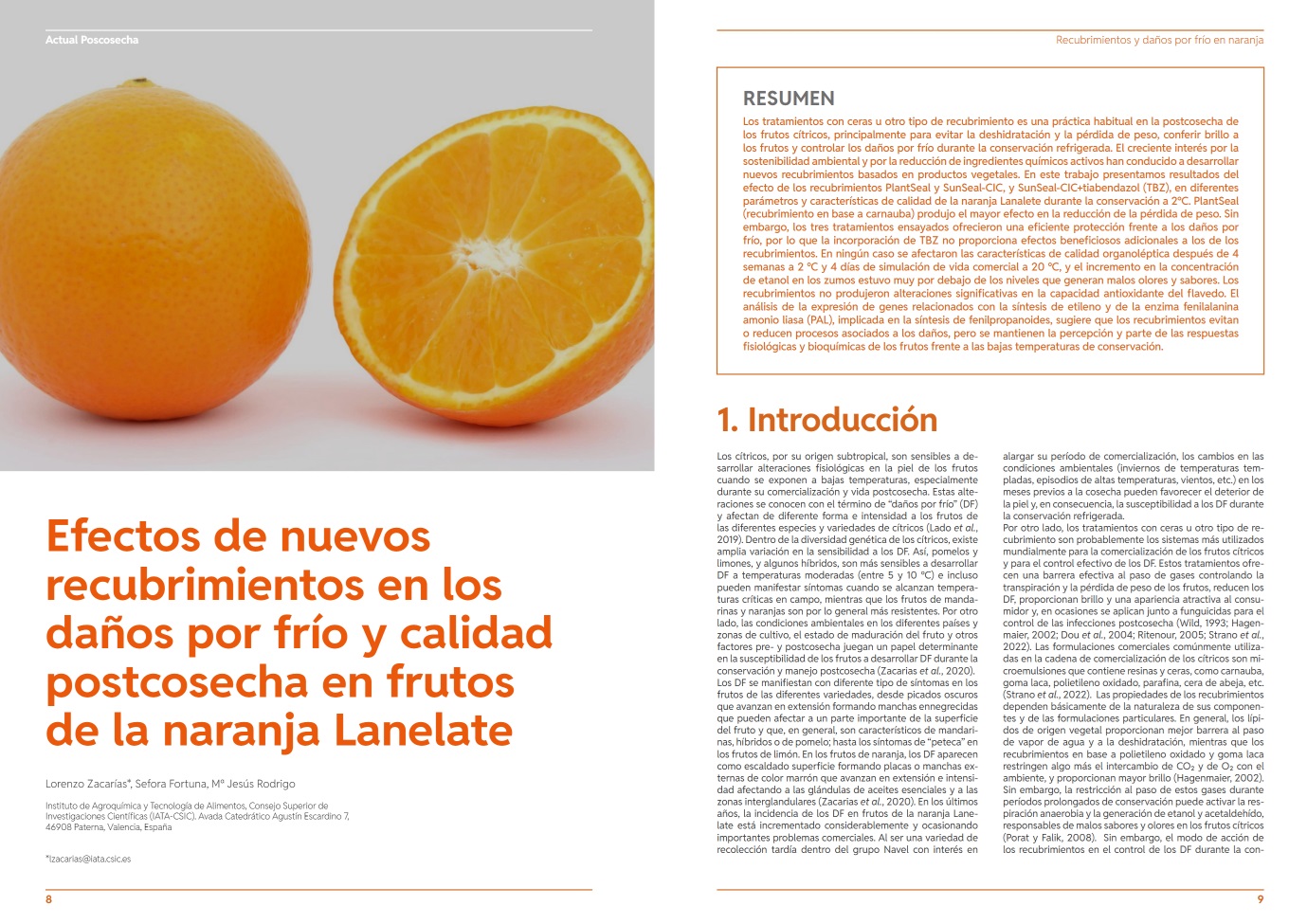Actualidad
New Plant-Based Coatings Improve Postharvest Quality and Reduce Chilling Injuries in Lanelate Oranges
A recent study conducted by researchers Lorenzo Zacarías, Sefora Fortuna, and Mª Jesús Rodrigo from the Institute of Agrochemistry and Food Technology (IATA-CSIC) and published in the journal Actual Poscosecha 2024 has evaluated the effects of new plant-based coatings on postharvest quality and chilling injuries in Lanelate oranges during refrigerated storage

The treatment of citrus fruits with waxes or coatings is a common practice in the agro-food industry to prevent dehydration, weight loss, and chilling injuries. However, the growing interest in sustainability and the reduction of active chemical ingredients has driven the development of coatings based on plant products.
In their study, the researchers tested three types of coatings from the company CITROSOL: PlantSeal, based on carnauba wax, and two variants of SunSeal-CIC (with and without thiabendazole), on Lanelate oranges stored at 2°C. The results showed that the PlantSeal coating most effectively reduced fruit weight loss, while all three treatments provided effective protection against chilling injuries, without the addition of thiabendazole providing additional benefits.
Despite the refrigerated conditions, the coatings did not affect the organoleptic characteristics of the oranges or significantly alter the antioxidant capacity of the flavedo. Additionally, ethanol levels in the juices were very low, not causing unpleasant odors or undesirable flavors. These coatings proved effective in preserving the physical and chemical quality of the oranges for 4 weeks at 2°C and 4 days simulating commercial life at 20°C.
Genetic analyses also suggested that the coatings act by reducing processes associated with chilling injuries, while maintaining the natural perception of the fruits' physiological and biochemical responses to low temperatures. This finding is important as it shows that, although the coatings protect the fruit, they do not alter its basic metabolism, which is key to ensuring the quality of the final product.
This study opens new possibilities for the citrus industry by offering more sustainable, effective, and natural coatings, aligned with market demands for environmentally friendly solutions that improve postharvest preservation without compromising product quality.














